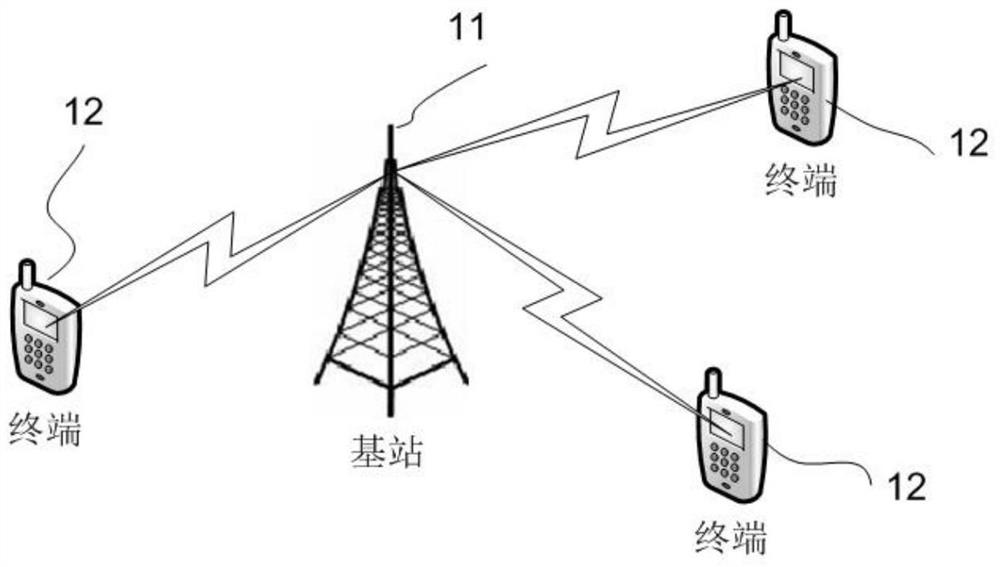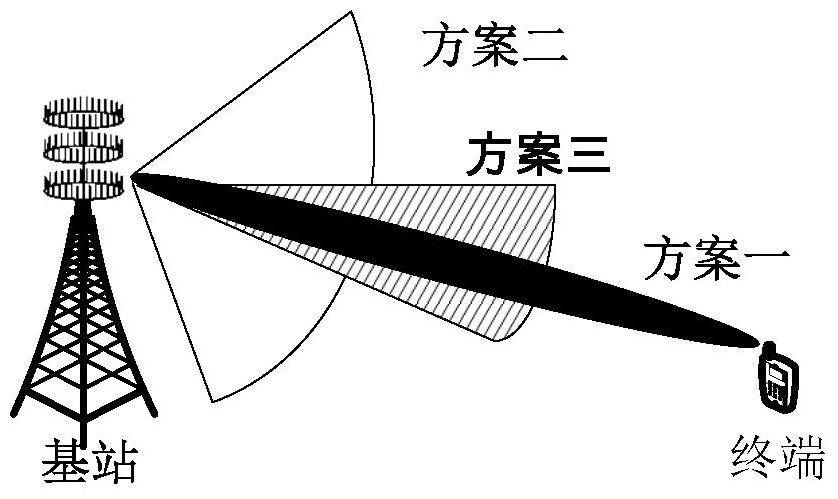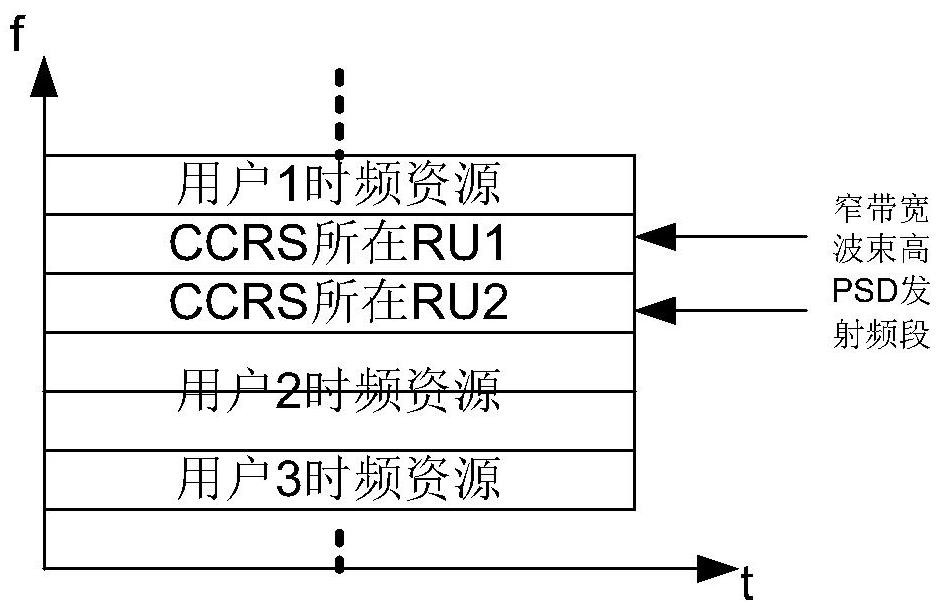Reference signal transmission method and device
A reference signal and reference signal sequence technology, applied in the field of reference signal transmission, can solve the problems of shortened transmission distance, loss of array gain, poor cell-specific signal quality, etc., to control mutual interference, control overhead, and solve array gain. and coverage effects
- Summary
- Abstract
- Description
- Claims
- Application Information
AI Technical Summary
Problems solved by technology
Method used
Image
Examples
Embodiment 1
[0108] A base station with M antenna ports generates cell control reference information for detecting common control information before sending common control information. In this embodiment, the cell control reference information for detecting common control information is a CCRS sequence.
[0109] The base station maps the common control information and the cell control reference information to one or more resource units RU of N antenna ports, and then uses the one or more RUs to detect the common control information and the common The cell control reference information of the control information is sent to terminals within the coverage of the base station. The foregoing N antenna ports are a part of the M antenna ports of the base station.
[0110] Before sending the common control information, the base station needs to generate a CCRS sequence for detecting the common control information. In order to be consistent with the CCRS sequences generated by the terminal, the base ...
Embodiment 2
[0188] The CCRS sequence solution shown in the first embodiment discusses that there is only one common control channel, that is, there is only one CCRS sequence frequency band in the entire frequency band. When the transmission bandwidth of the base station is relatively large, such as 200MHz bandwidth, the entire bandwidth can be divided into multiple 20MHz or even narrower bandwidth subbands by the base station, or the system itself is aggregated by multiple 20MHz bandwidth carriers (without loss of generality). characteristics, which are collectively represented by multiple subbands below), the base station can be designed to send common control channels in multiple subbands, such as Figure 7 As shown, the common control channel is distributed on the time-frequency resources of different subbands of a frame, where each space represents an RU, and the oblique part is the resource occupied by the common control channel. It can be seen that each subband can independently sche...
Embodiment 3
[0191] Figure 8According to the above embodiments, a structural block diagram of an apparatus for sending and receiving cell control reference information is provided. For ease of description, only the parts related to the embodiment of the present application are shown. And in this embodiment, the device can be either a base station or a terminal.
[0192] In this device, the base station 100 includes: an antenna 110 , a transmitter 120 , a processor 130 , and a memory 140 . The antenna 110 has M antenna ports, and N antenna ports are dedicated to sending common control information and CCRS sequences used to detect the common control information.
[0193] The transmitter 120 is configured to transmit common control information and CCRS sequences to terminals within the coverage of the base station through N antenna ports through one or more RUs.
[0194] The memory 140 is used for storing mapping patterns, program codes and pseudo-random sequences executable by the proces...
PUM
 Login to View More
Login to View More Abstract
Description
Claims
Application Information
 Login to View More
Login to View More - R&D
- Intellectual Property
- Life Sciences
- Materials
- Tech Scout
- Unparalleled Data Quality
- Higher Quality Content
- 60% Fewer Hallucinations
Browse by: Latest US Patents, China's latest patents, Technical Efficacy Thesaurus, Application Domain, Technology Topic, Popular Technical Reports.
© 2025 PatSnap. All rights reserved.Legal|Privacy policy|Modern Slavery Act Transparency Statement|Sitemap|About US| Contact US: help@patsnap.com



